“Paduka — open sandals that are 5,000 years old. They are still worn in India. These sandals and their footprints are considered sacred in Buddhism and Hinduism.”
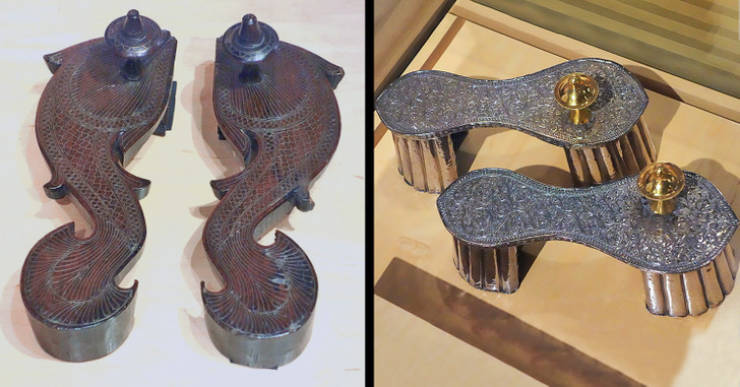
“These kids’ sandals from Egypt are 3,000 years old.”
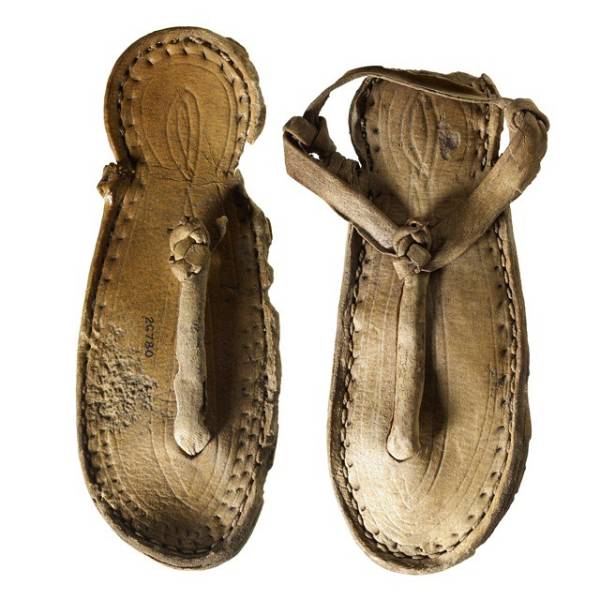
“Namaksin are, in theory, like ancient rubber boots. They are Korean wooden shoes made for rainy weather, from 220-280 CE.”
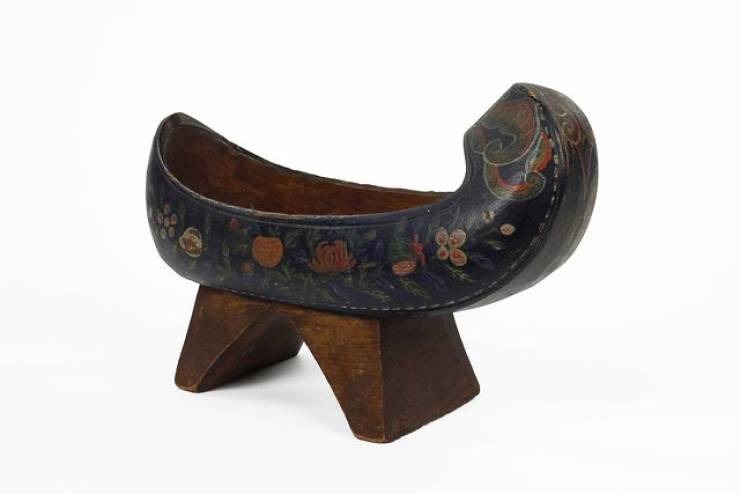
“Chopines showed off the high status of the wearer and could reach heights of up to 20 inches. These shoes were called lewd, but that didn’t stop them from becoming popular. Venice, 15th century”
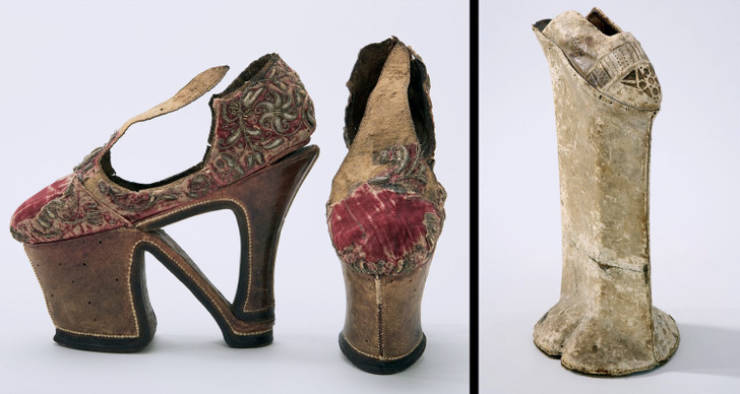
“Kothornos were ancient Roman stage shoes that were worn by the actors of tragedies in order to look taller.”
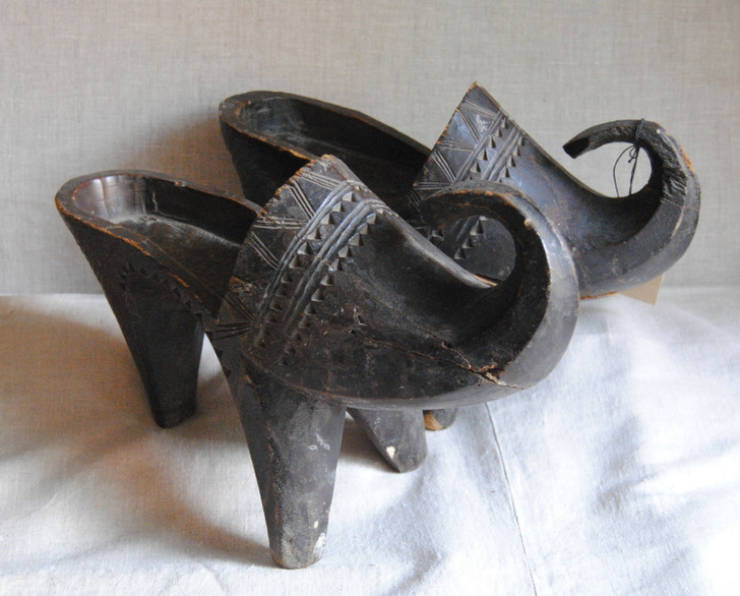
“Bath clogs prevented people from slipping on wet floors and showed off their high status. They got the name “qabqab” for the clacking noise they made on marble floors. Turkey 1800—1850s.”
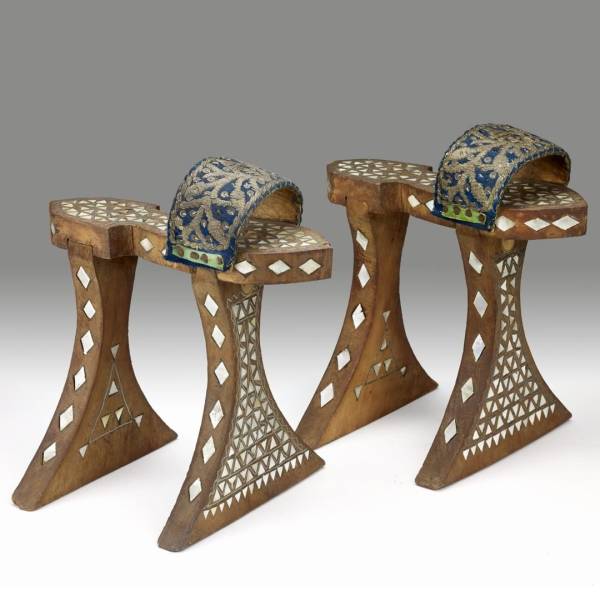
“Lotus shoes fit in the palm — they were worn by Chinese girls whose feet were bound from childhood in order to prevent them from them growing. The natural foot size and shape were considered ugly. China, 1800-1943.”
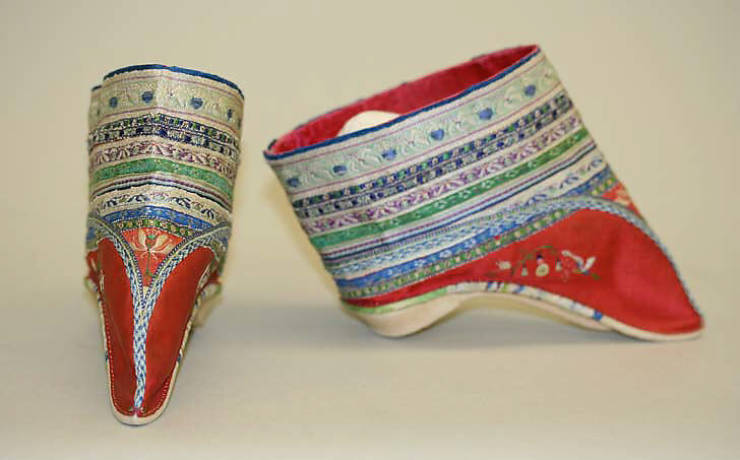
“200 years ago, women would only ride side-saddle, otherwise, it was considered indecent. Stirrups in the shape of shoes without a back were
used as footrests. Peru, 18th century”
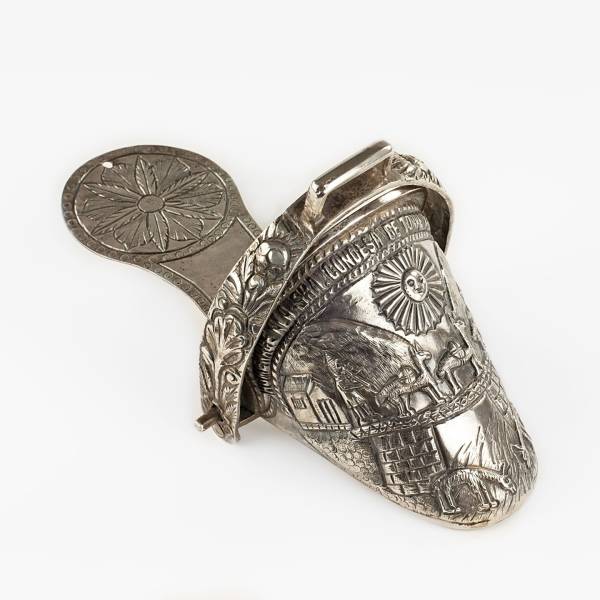
“Clogs with bells, from the late 19th century, designed for wearing at home, belonged to an Armenian woman who immigrated to Syria.”
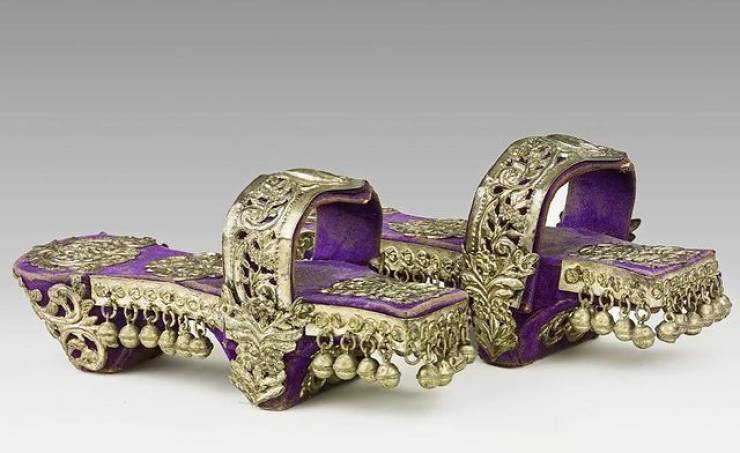
“Stocking boots. Sweden or Germany, late 19th century”

“Yep, these are shoes too. These wooden sandals may have belonged to the sultan of Witu, Fumo Omari. Kenya, 19th century”
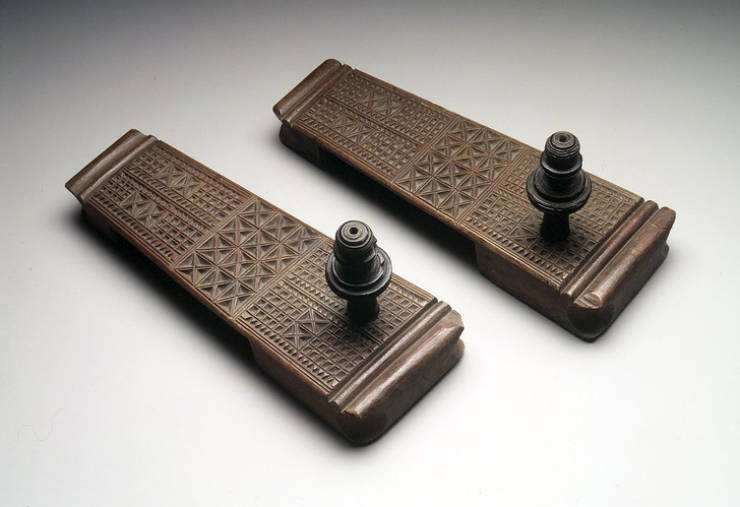
“Klomps are traditional Holland wooden shoes. They are still worn by some farmers and gardeners. Netherlands, 1948″
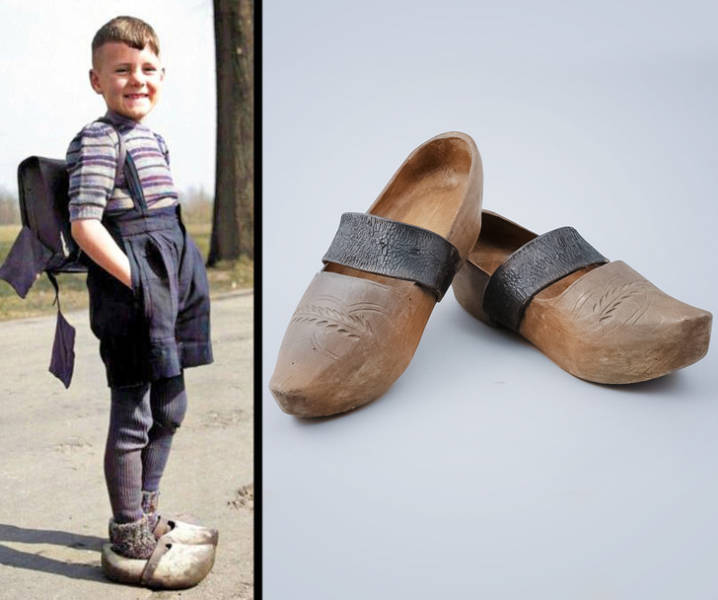
“Ichigi — leather boots with a thin sole that were worn indoors by both men and women from Kazakhstan, 1900s”
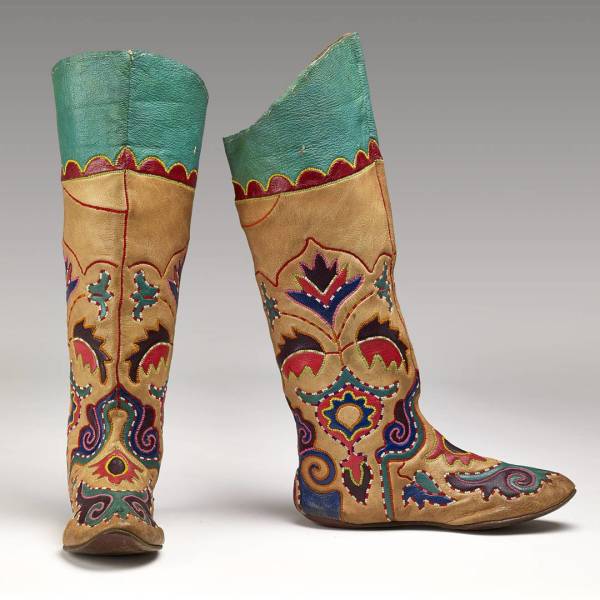
“Loafers with the finest embroidery using gold thread, 1900-1930″
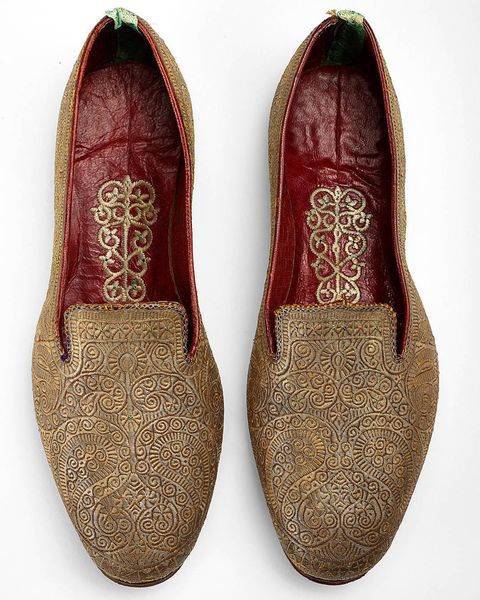
“Men would carve these clogs from a single piece of wood and give them to their brides on Christmas as a symbol of fidelity. It was believed that the longer the point, the stronger the feelings. France, early 20th century”
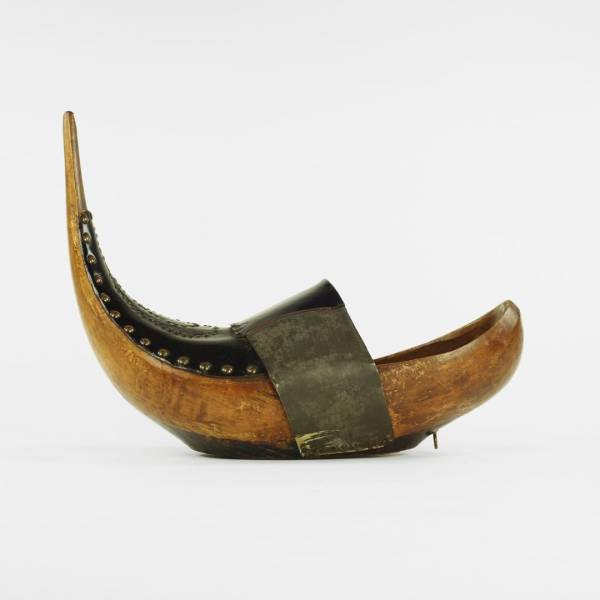
“Embroidered shoes created by Jean-Louis François Pinet, the most well-known shoemaker in France, late 19th century”
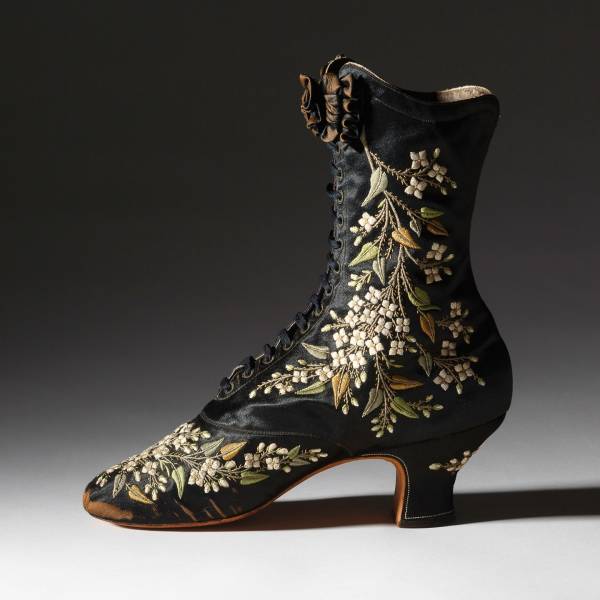
“Men’s wedding boots, southern Moravia (territory of modern Czech Republic)”
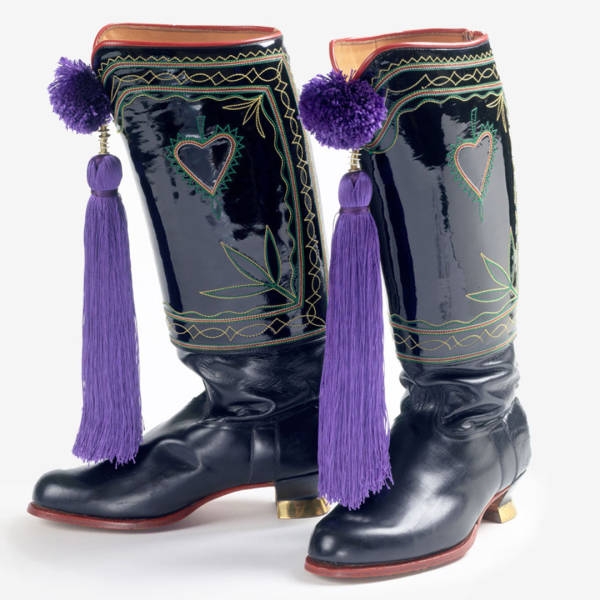
“Sandals with giant pom-poms — traditional footwear of the Wayúu people, indigenous to northern Venezuela and Colombia, 1980″
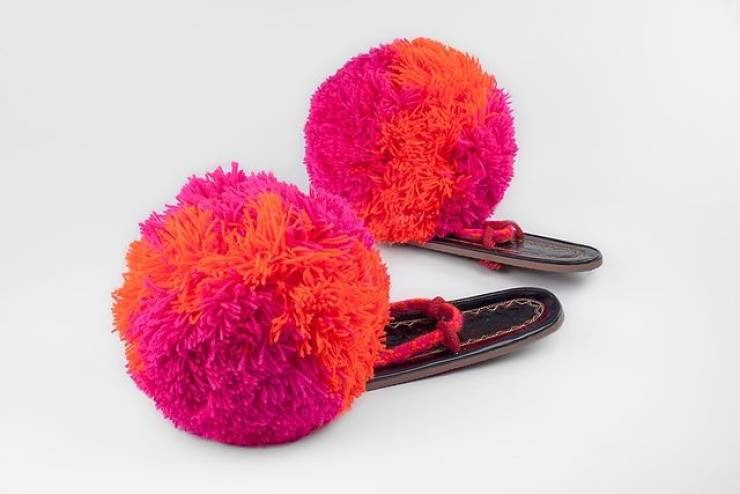
Credits: brightside.me
 Barnorama All Fun In The Barn
Barnorama All Fun In The Barn